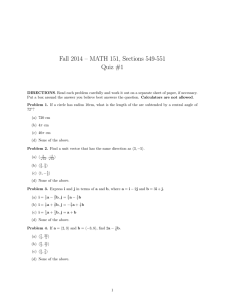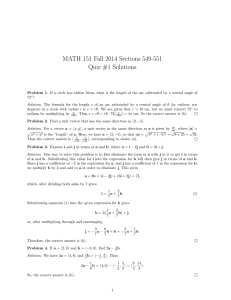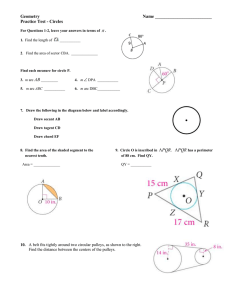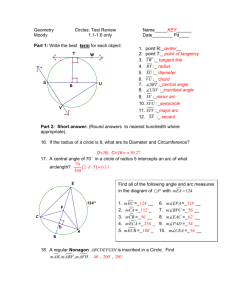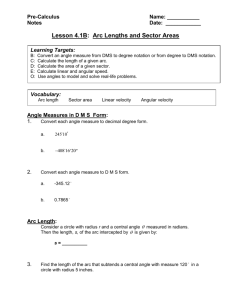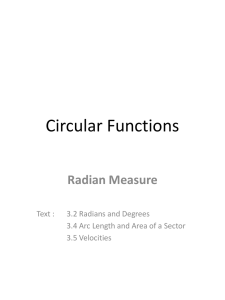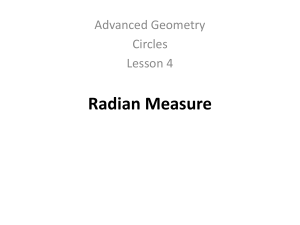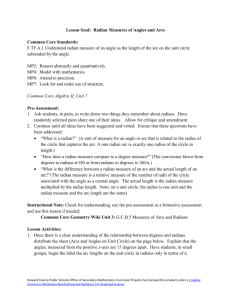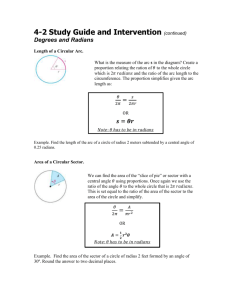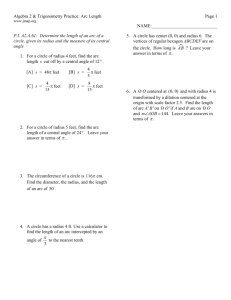Math 108 DAY 2 1-26-15
advertisement
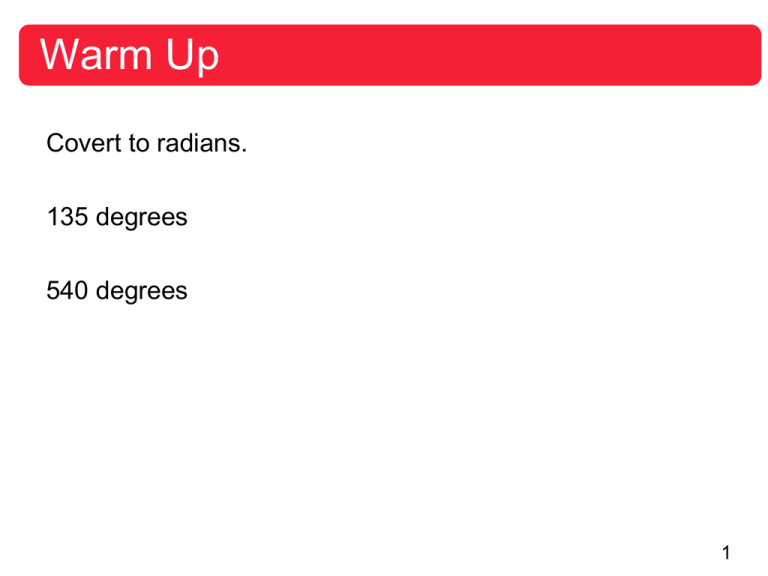
Warm Up Covert to radians. 135 degrees 540 degrees 1 Example 3 – Converting from Degrees to Radians a. Multiply by rad / 180. b. Multiply by rad / 180. 2 Applications 3 Applications The radian measure formula, = s/r, can be used to measure arc length along a circle. 4 Example 5 – Finding Arc Length A circle has a radius of 4 inches. Find the length of the arc intercepted by a central angle of 240, as shown in Figure 1.12. Figure 1.12 5 Example 5 – Solution To use the formula s = r, first convert 240 to radian measure. 6 Example 5 – Solution cont’d Then, using a radius of r = 4 inches, you can find the arc length to be s = r Note that the units for r determine the units for r because is given in radian measure, which has no units. 7 Your Turn A circle has a radius of 5 inches. Find the length of the arc intercepted by a central angle of 270, as shown in Figure 1.12. Figure 1.12 8 Applications The formula for the length of a circular arc can help you analyze the motion of a particle moving at a constant speed along a circular path. 9 Example 10 Linear speed Recall the formula d = rt which holds for and object whose average speed is known. If we want to know the rate at which an object is moving around a circle we can adapt this formula to be s = vt where s is the arc length, t is the time, and v is the angular velocity. 11 Example An object is traveling around a circle with a radius of 5 cm. If in 20 minutes a central angle of 1/3 radians is swept out, what is the linear speed. We are looking for linear speed. Find s. s = r = 5(1/3)=5/3 Use s = vt where s = 5/3, t = 20 sec. Thus 5/3 = v(20) or v = 5/60. Since v is in cm/sec we have v = 5cm/12sec. 12 Angular speed 13 14 Applications A sector of a circle is the region bounded by two radii of the circle and their intercepted arc (see Figure 1.15). Figure 1.15 15 Applications Find the area of a sector where r = 6m and theta = 120 degrees. 16
